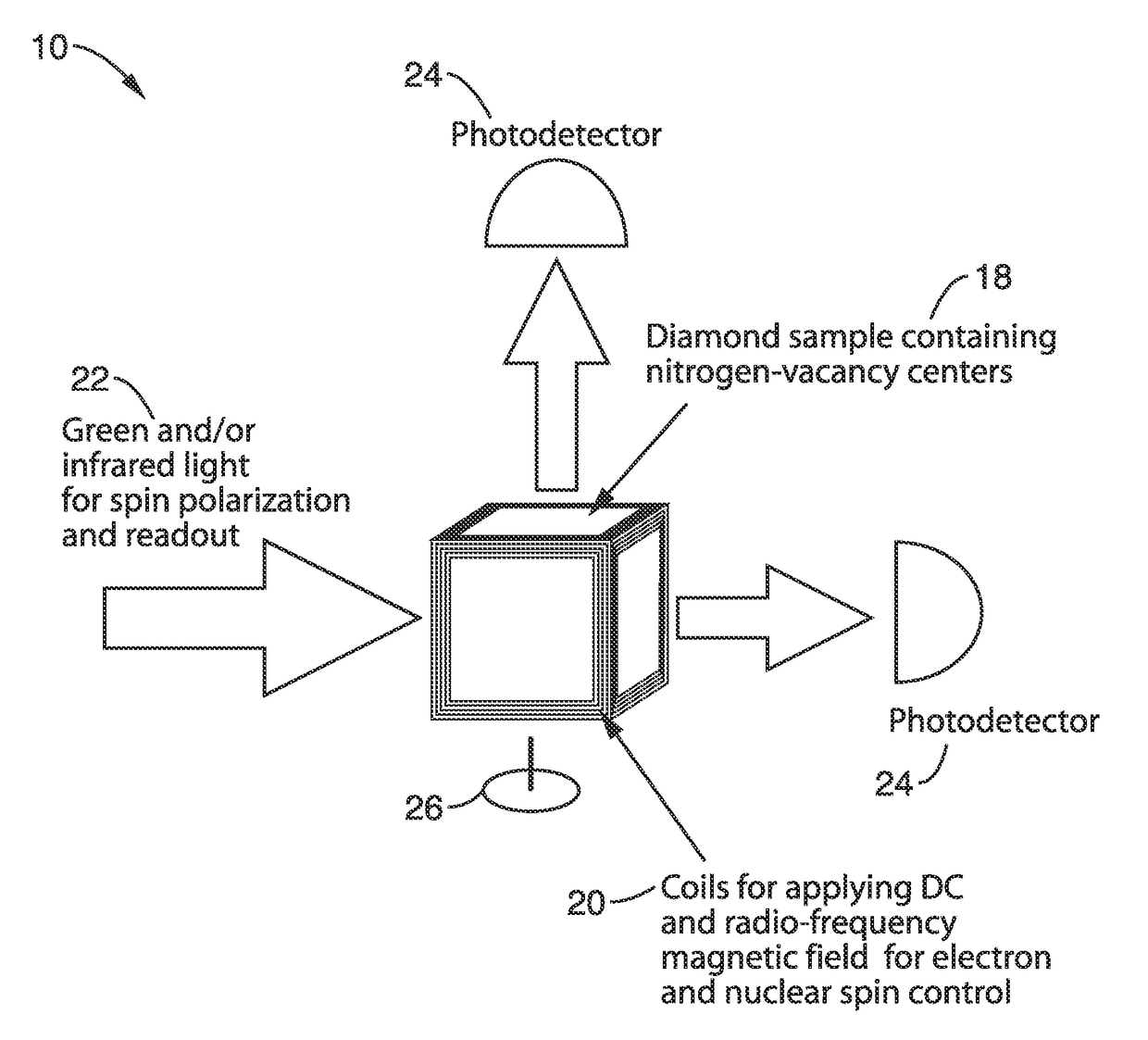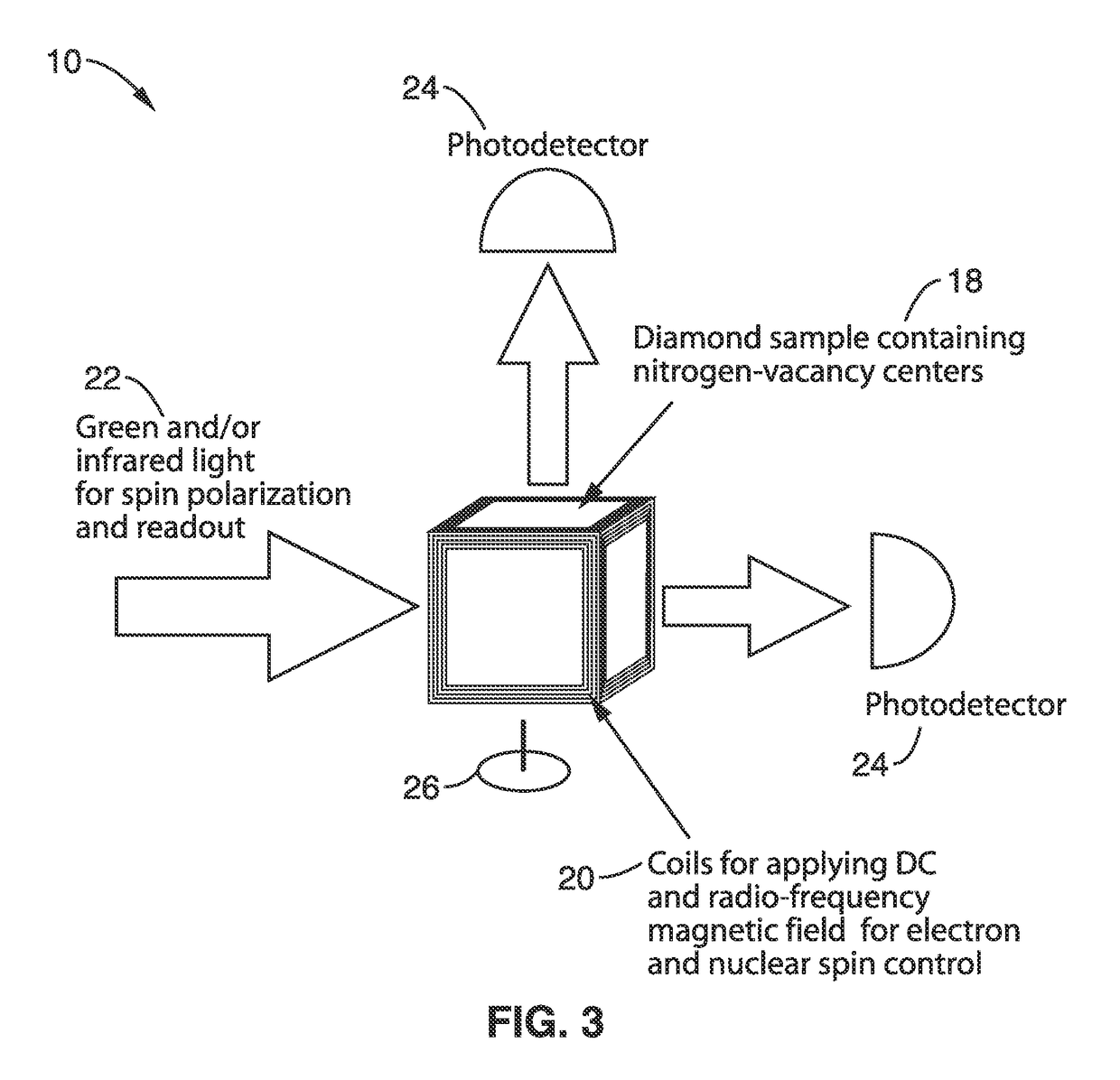Gyroscopes based on nitrogen-vacancy centers in diamond
a gyroscope and diamond technology, applied in the field of gyroscopes, can solve the problems of relative phase shift of the magnetic sublevel, and achieve the effects of large geometric phase shift, small dimension, and thermal robustness
- Summary
- Abstract
- Description
- Claims
- Application Information
AI Technical Summary
Benefits of technology
Problems solved by technology
Method used
Image
Examples
example 1
[0094]In order to demonstrate the functionality of the methods, an apparatus 140 shown schematically in FIG. 8 was assembled. The apparatus 140 used a high pressure high temperature (HPHT) diamond slab 142. The diamond 142 had a nitrogen concentration of approximately 200 ppm and a concentration of NV− centers of 12 ppm. The diamond was cut perpendicular to the [100] crystallographic direction.
[0095]The diamond 142 is located in a static magnetic field produced by a permanent magnet 144. A microwave (MW) generator 158 sent current through a wire located on top of the diamond 142 that produced the MW field. Green (532 nm) light 146 from a laser 148 was focused onto the diamond 142 using a confocal setup with an aspheric lens 150 with a focal length of 4 mm and a numerical aperture NA=0.60.
[0096]The resulting red fluorescence from the diamond 142 was detected with a photodiode 154 after passing through a dichroic mirror 152 and a filter 156. The amount of red fluorescence as a functio...
example 2
[0099]To further demonstrate the methods, the transfer of the polarization of the electron spins of negatively charged nitrogen vacancy (NV) centers to the nuclear spins at the excited-state level anti-crossing (ESLAC) of the center was demonstrated. Polarization of 80% for the 14N nuclear spins within the NV centers, as well as a 50% polarization of proximal 13C nuclear spins was observed.
[0100]A type-Ib diamond with initial nitrogen concentration of 50 ppm was obtained and irradiated with 3 MeV electrons and annealed at 750° C. for 2 hours to provide a sensor platform. The NV-center concentration in the diamond after this process is estimated to be on the order of 10 ppm. The inhomogeneously broadened full width half maximum of the ground-state resonance is about 2.5 MHz, so the hyperfine splitting in the ground state (2.14 MHz) due to interaction with 14N was discernible.
[0101]Using a similar apparatus as that shown in FIG. 8, a spherical lens with focal length of 15 mm was provi...
PUM
 Login to View More
Login to View More Abstract
Description
Claims
Application Information
 Login to View More
Login to View More - R&D
- Intellectual Property
- Life Sciences
- Materials
- Tech Scout
- Unparalleled Data Quality
- Higher Quality Content
- 60% Fewer Hallucinations
Browse by: Latest US Patents, China's latest patents, Technical Efficacy Thesaurus, Application Domain, Technology Topic, Popular Technical Reports.
© 2025 PatSnap. All rights reserved.Legal|Privacy policy|Modern Slavery Act Transparency Statement|Sitemap|About US| Contact US: help@patsnap.com



